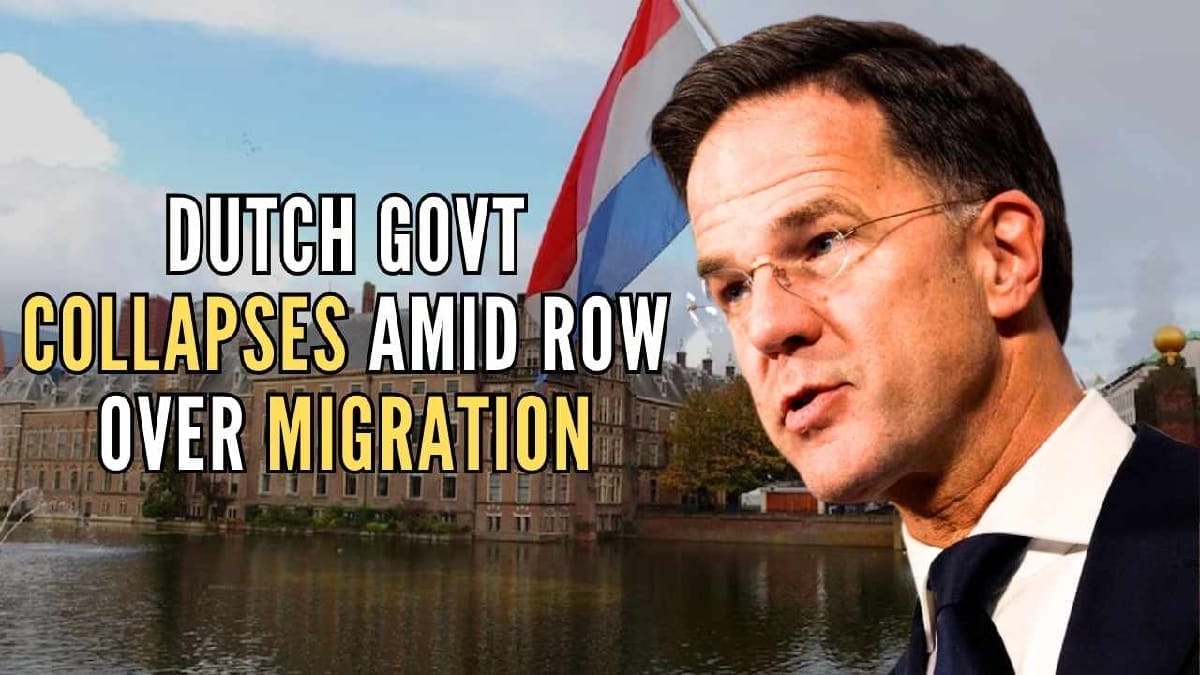Do you know what is the most trending topic on the internet today? The topic of most interest is the sudden collapse of the Dutch government. The sudden collapse of Prime Minister Mark Rutte’s government amid tense debates over immigration policy has sparked political unrest in the Netherlands. Rutte, a prominent figure in Dutch politics, nearly ended his fourth administration by forcing his coalition partners to agree to non-negotiable criteria on the right to family reunification for refugees from conflict zones. This article discusses the circumstances that led to the government’s collapse as well as any possible ramifications and prospects for Dutch politics going forward.

Significance of the fall of the Dutch government
The People’s Party for Freedom and Democracy (VVD), the Christian Democrats, the liberal D66 and the smaller Christian Union are all members of Rutte’s coalition and have recently discussed asylum policy. problem. These negotiations sought to strike a compromise between respecting humanitarian principles and addressing concerns about the greater need for resources and the integration of newcomers that came with it. Rutte’s non-negotiable demands on Wednesday caused a breakdown in communication and erased gains made in the negotiations.

The goal of Rutte’s ultimatum is to limit the ability of war zone refugees to reunite with their families. This action immediately created outrage and created significant differences within the alliance, causing the battle to quickly escalate.
Political unrest and uncertainty resulted from the collapse of the Dutch government. Decision-making procedures may be hampered and government operations may be disrupted by rapid changes in leadership. The issue of immigration policy remains open after the accident. The Dutch government is currently faced with the problem of developing a new strategy to manage the complexities of migration while ensuring the welfare of refugees and the integration of new immigrants after when negotiations were suspended and no agreement was reached.

The consequences of the election could be the dissolution of the government. Political parties will need to mobilize themselves and map out migration and other important topics as the Dutch public braces for a surprise election. This development could cause a realignment of political forces and influence how future coalition governments are organized.
The formation of a new administration was necessary due to the collapse of the Dutch government. The Netherlands must now take the initiative in new negotiations and form a coalition capable of adequately addressing the urgent problems facing the country. Future policy decisions, especially those on immigration and asylum, will be influenced by the results of the approaching election, which will also determine the goals of the new administration.
Categories: Trending
Source: Tekmonk Bio, Make Money Blogging




GIPHY App Key not set. Please check settings